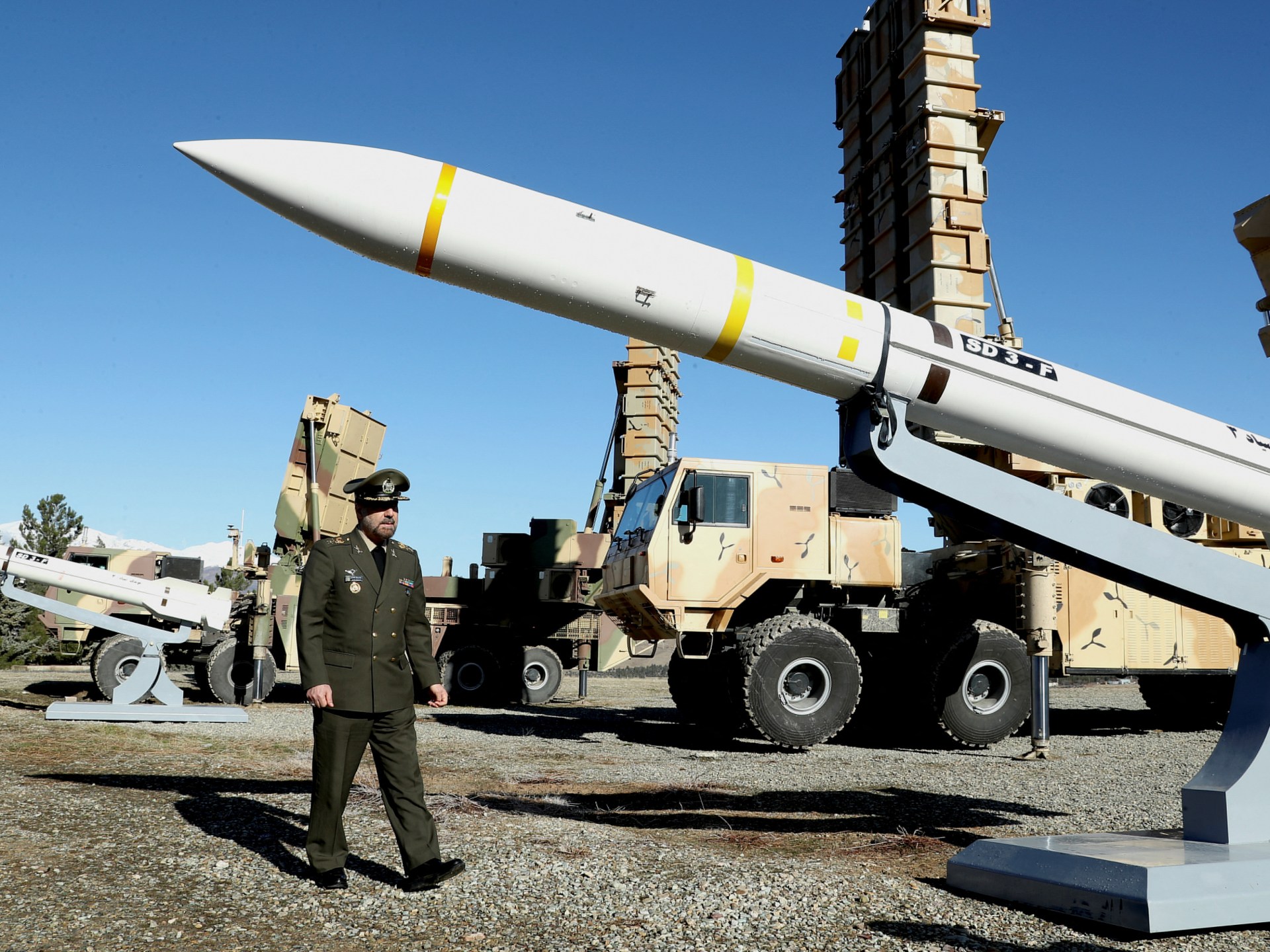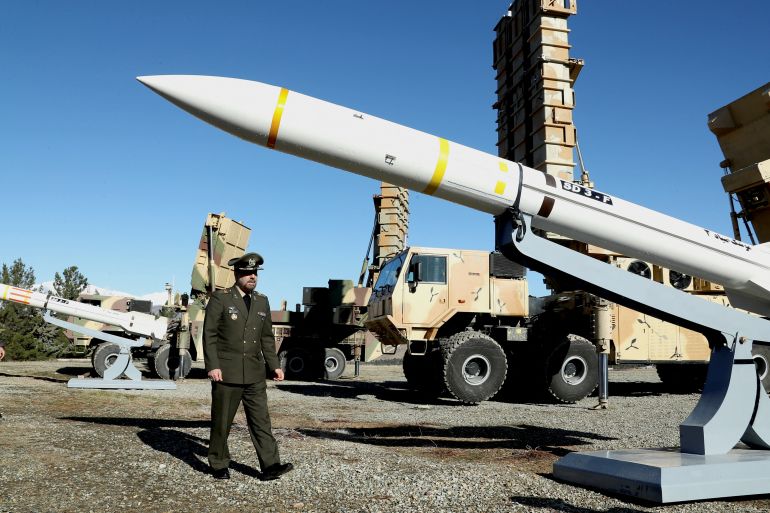Interesting analysis of Iran's defensive weapons.
I think Iran's best defenses are: 1. Its a big country 2. Its assets are dispersed 3. Non existent air force so nothing important to destroy 4. Its distance from Israel through hostile territory 5. Most importantly people are tough . The prior generation saw 8 years of Scud wars. 6. Ability to retaliate
Any analysis on this sort of equipment is militarily insignificant. This a war of sensor/countermeasure/faster OODA loop that favors training and faster signal processing/micro chips.
In this regard, NATO has excelled at again and again. In Iraq, twice. In Serbia/Kosovo, and Israel repeatedly humiliates Syria by flying over it as it wishes.
These defensive weapons are show pieces. They will get neutralized by jamming.
Iran operates a wide variety of missile defence batteries at different ranges that aim to defend against aerial strikes.

www.aljazeera.com
News|
Military
[H1]How well could Iran defend itself against a potential Israeli attack?[/H1]
Iran operates a wide variety of missile defence batteries at different ranges that aim to defend against aerial strikes.
Iran's Defence Minister Brigadier General Mohammad-Reza Ashtiani walks near an Iranian missile during an unveiling ceremony in Tehran, Iran, in this picture obtained on February 17, 2024 [Handout: Ministry of Defence and Armed Forces Logistics via Reuters]
By
Maziar Motamedi
Published On 17 Apr 202417 Apr 2024
Tehran, Iran – Israel has pledged to "exact a price" from Iran in response to missile and drone attacks launched by Tehran in retaliation to the
deadly bombing of its consulate in Syria at the beginning of this month.
Israel's war cabinet has met several times to debate a course of action to complement a diplomatic push against Iran since Saturday's unprecedented
direct attacks on Israel, with Israeli army chief of staff Herzi Halevi saying a military response is certain.
[H2]Keep reading [/H2]
list of 4 itemslist 1 of 4
[H3]
Russia's Putin urges restraint in call with Iran's Raisi[/H3]
list 2 of 4
[H3]
'Iran will face the consequences' of its attack says Israeli army chief[/H3]
list 3 of 4
[H3]
Bombs and viruses: The shadowy history of Israel's attacks on Iranian soil[/H3]
list 4 of 4
[H3]
Accusations of 'double standards' at UN after Iran's attack on Israel[/H3]
end of list
Iranian President Raisi threatened a "
massive and harsh response" on Wednesday if Israel decides to launch a direct military assault on Iranian soil. So how effectively can Iran defend itself if such an attack occurs?
[H2]Relying on local defensive arms[/H2]
For decades, Iran has increasingly insisted on relying on its local capabilities when it comes to its economy, but a similar push can also be seen in its military sector.
Much of that sentiment is rooted in Iran's eight years of war with neighbouring Iraq, which invaded Iran in 1980 under former ruler Saddam Hussein. Baghdad was militarily backed by a multitude of foreign powers, including the United States.
Hampered by decades of sanctions and embargos, Iran's air superiority is still heavily challenged, with some of its fighter jets and equipment, including US-made F-4 and F-5 fighter jets, dating back to before the country's 1979 revolution – which overthrew the West-backed monarchy of Shah Mohammad Reza Pahlavi.
Iran now mostly operates Russian Sukhoi and MiG fighter jets that date back to the Soviet era. The Iranian air force has been building its own jets too, like the Saeqeh and Kowsar which are based on US designs, but they are not believed to be a match for some of the top fighter jets like the F-35s that Israel employs in large numbers.
A delivery of two dozen Russian-made Su-35 fighter jets, negotiations for which have been ongoing for some time, could significantly revitalise the Iranian air force, but it would not eliminate the need for robust air defence batteries.
[H2]Long-range missile batteries[/H2]
Iran has tried to compensate for its ageing domestic fighter jets with ambitious missile programmes. It has particularly focused on improving its air defence systems – in addition to burying some of its airbases, missile depots and nuclear facilities
deep in the mountains to protect them against bunker buster munitions given to Israel by the US. Israel has extensively used the US-supplied bunker buster bombs during its six months of war on Gaza.
The longest-range missile defence system operated by Iran is the locally-developed Bavar-373, which entered service in 2019 after a decade of development and testing, and has been significantly improved since.





